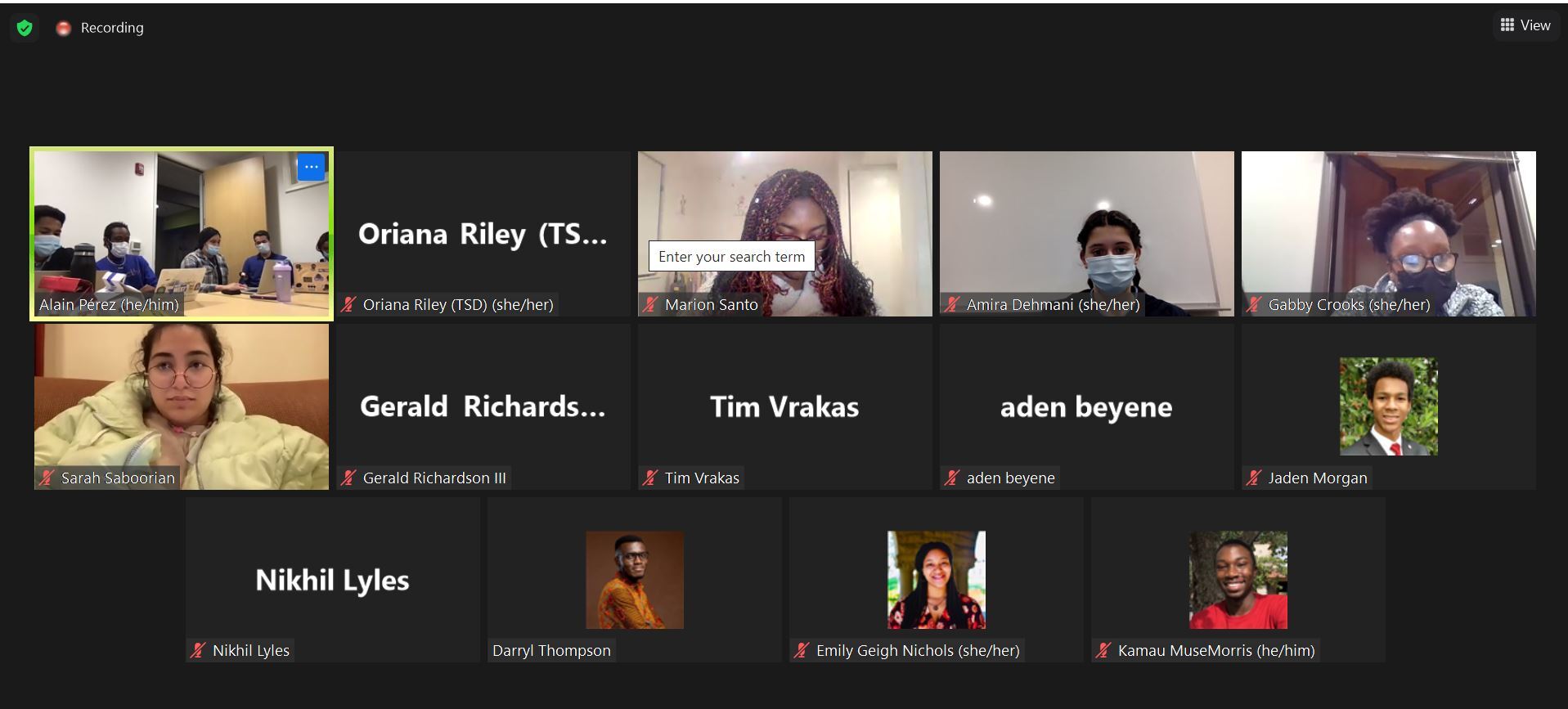Senators unanimously passed the Ubuntu Bill, which outlines a conflict-resolution procedure for student groups facilitated by the Undergraduate Senate, and continued conversations on the new alcohol policy and hybrid learning at Tuesday’s Senate meeting.
Senator Joshua Jankelow ’24, who introduced the Ubuntu Bill in September, said it was important to create spaces to allow for moderated discussion between student groups. Several senators concurred, and, after pausing for pizza at the first hybrid Senate meeting since the start of the pandemic, unanimously passed the bill.
Ubuntu Conventions, which can now be requested by any student group on campus seeking moderated conflict resolution, will enable the Senate to understand the nuances of a disagreement before helping groups work towards a solution, Jankelow said.
“This is a significant step towards centering the Senate around students and their needs and will build the bridges necessary to foster cross-campus community,” Jankelow wrote in a statement to The Daily.
Senator Marion Santo ’23 wrote that the bill’s provisions for “conflict resolution protocol” were especially important to identify solutions “when student group interests may conflict with one another.”
Associated Students of Stanford University President Christian Giadolor ’21 M.A. ’22 said he discussed a student petition calling for all classes to have a hybrid option with Vice Provost of Undergraduate Education Sarah Church. Giadolor said Church was pessimistic about the probability of passing a joint resolution between the Undergraduate and Faculty Senate on the matter but was open to collaborating with the Undergraduate sSenate in exploring its potential.
Senators also discussed conversations about creating a relationship with the Faculty Senate. Santo presented an overview of how the Faculty Senate works. It is important for the Undergraduate Senate to be aware of the Faculty Senate’s action and standing calendar to get their resolutions voted on, she said.
The senators briefly discussed a resolution they are working on to address the University’s new alcohol policy. Senator Amira Dehmani ’24 expressed concerns about the relationship between the alcohol policy and Title IX reporting, advocating for provisions that protect those reporting Title IX violations from disciplinary action. Following advocacy from Sexual Violence Stanford, the University added a footnote to the policy that states that victims and witnesses reporting incidents of sexual violence will not face disciplinary action for underage drinking.
Senators also said there was room for clarification on who will face disciplinary action under the Good Samaritan Clause in the alcohol policy.
The Senate will also continue to develop a Voluntary Student Organization and Senate Liaison Bill which hopes to create a streamlined process for advocacy organizations to meet with the Senate.
